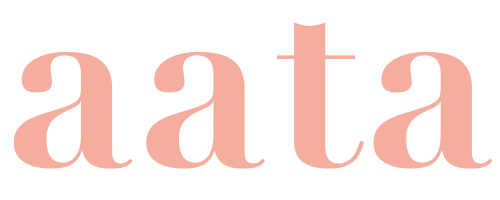What is Founder Coaching?
As a business owner, there are a wealth of resources available to you, from mentors to consultants. So let’s get really clear on exactly what a Founder Coach is, and the value they can bring.
Continue Reading ↓
What is Founder Coaching? Aata explains.
What is Founder Coaching?
Aata Definition: Founder Coaching is a series of purposeful conversations with founders, in which a professional coach works with them to achieve their vision for the business and their role within it.
Aata Definition: Founder Coaching is a series of purposeful conversations with founders, in which a professional coach works with them to achieve their vision for the business and their role within it.
Common misconceptions of Founder Coaching
To understand what Founder Coaching is, it's important to make the distinction by defining what Founder Coaching is not. Here are some common misconceptions about what Founder Coaching is:
A 'get rich quick' scheme; e.g. With my method you'll make a six-figure salary in three-months!
A fixed and preset programme, or training programme.
Mentoring or consulting.
The role of an investor, advisor or Board Chair.
The simplest way to define Founder Coaching is by comparison with a consultant, as you can see in the analogy below.
How coaching differs to consulting and mentoring
A consultant or a mentor usually has expertise on a specific topic, whether that is intellectual property, human resources or go-to-market strategy. Qualified coaches are experts in realising individual potential. Explore the below analogy to understand this further:
‘A founder and a consultant are sat together, with a problem on the table in front of them. Both of them are focussing on the problem at hand, unpicking it and coming up with solutions together.
However, when the founder sits with the coach it is only the founder that is looking at the problem - the coach, is looking at the founder.’
In this story, the coach is observing how the founder is tackling the problem, expanding their perspective and the possibilities. It’s through this observation that they might say: “If you removed this limitation, what other options would you have?" or "What other perspectives could we explore this from?"
The coach supports the founder in the way they are approaching the challenge, supporting their thinking process, to come up with options that are liberating for them and their business - a coach won't tell you what they think you should do, they're not you. The founder can learn from the questions the coach asks and methods they use when the next situation arises.
The power of Founder Coaching
It’s hard to be aware of your own thinking process and the habits which have led you to where you are today, or to know how to push yourself out of your comfort zone.
As illustrated in the above analogy, a Founder Coach works by observing the way their client approaches their work, which is arguably more powerful than working directly on a solution to get them from A to B. It’s never about solving just one problem.
By working with a client on their mindset, self-awareness and leadership approach, they are then better prepared to deal with the onset of challenges they will inevitably face when scaling a business. A founder becomes more confident and resilient when equipped with tools and methods they can bring to their day-to-day work.
Coaching is more than a series of conversations, it is a relationship over a period of time, to support a founder on achieving a specified outcome. With coaching, a founder will often experiment with new ways of being, take time to get feedback, reflect and learn. It can take time for a team to adjust. A coach supports this journey. The relationship ends once the outcome is achieved. And if a coach and client decide to continue working together, it will be towards another clear goal.
What are the benefits of Founder Coaching?
So now we’ve established exactly what Founder Coaching is, and what it is not, let’s explore what the value to the founder is:
Clarity on purpose and direction - personally, professionally and for the business
Confidence in abilities and decision-making
Feeling clarity around their role in the business and what others need from them and what they need from others
Self-awareness and other-awareness
Founder Coaching as a science
The coaching profession has roots in humanistic psychology, business psychology and sports coaching. There are many philosophies, tools and techniques a coach can draw upon from these disciplines. During the course of the coaching relationship, a professional business coach will access science-based tools and their own experience to support the client. As an example, Aata embraces;
NLP (Neuro-linguistic programming), a tool with which the coach and client explore the language the client is choosing, how this influences their behaviour and how others respond to them.
Rogerian therapy, created by Carl Rogers, and is a therapeutic technique in which the client takes an active, autonomous role in therapy sessions. It is based on the idea that the client knows what is best and that the therapist's role is to facilitate an environment in which the client can bring about positive change.
Positive Psychology, which has been defined as the study of the strengths and virtues that enable individuals, communities and organisations to thrive.
Appreciative Inquiry (AI), which is a collaborative, strengths-based approach to change in organisations and other human systems.
In a one-on-one coaching programme, a founder may choose to access insights through psychometric tests. Examples of these include;
Strengths Profiling, to better articulate strengths and weaknesses in order to leverage them more effectively.
360° feedback from people who work directly with you to know how others experience you.
Founder Coaching takes founders to the next level
As with any founder-led business, it is essentially them that drives the business, that makes the decisions, hires a team and gives that team direction. Coaching assumes that all the ingredients that the founder needs they already have, but maybe they’re overplaying certain strengths or are relying on the characteristics and decision-making processes that got them to the point they are at now but won’t take them to the next level.
Perhaps the founder is really good at planning and organisation, but what will take them to the next level is a focus on their communication and delegation skills. This is hard for a founder, or for anyone in truth, to see for themselves. It’s through coaching that a founder can be supported to develop the awareness to grow into their potential and scale their business.
If you’re interested in knowing more about coaching, the first step is to book a chemistry call. Visit the Founder Coaching page to find out more.


